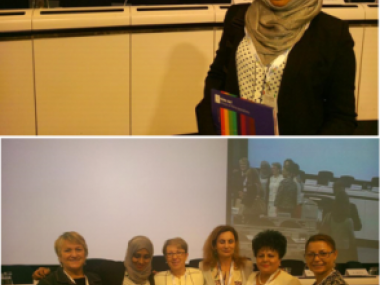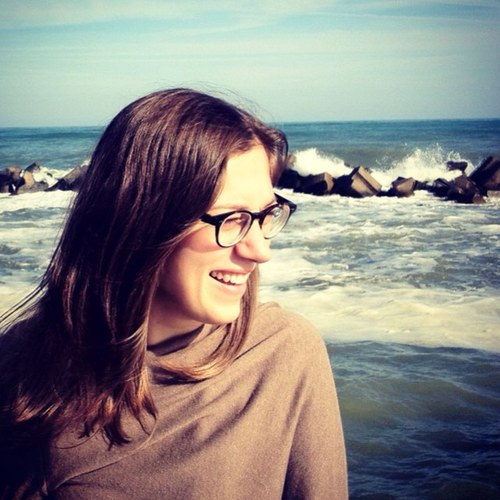ROMACT/ROMED Conference in Brussels
Edited on
13 February 2015Glasgow City Council was invited by DG Employment to talk at the ROMACT/ROMED Conference in Brussels about their Roma inclusion actions and their involvement in Roma-NeT.

Dr Soryia Siddique BSc (Hon), MSc, PhD, attended and spoke on behalf of the city. She is an elected member of Glasgow City Council, and an active local politician representing the area of the city where most Roma live. Here she writes about her role in the Conference and why it was important for Local Authorities. The European Commission organised this high-level conference in Brussels on 2nd and 3rd October 2014 to present lessons learned from actions being applied at the local level in the year since the ROMACT programme was launched by the European Commission and the Council of Europe. At this conference on Roma inclusion actions on the ground, Roma-NeT partners joined and Cities gave presentations. I spoke about Glasgow and our extensive inclusion practices that have specifically been tailored or developed to support Roma now living in the city. We discussed how the practices are being applied to tackle social and economic exclusion and the results and examples of success; especially in education;. The conference was an environment where professionals from local authorities shared experiences and learned from each other as well as having the opportunity to be heard by key decision-makers from the European Commission, the Council of Europe and other key institutions. Mayor Honsell from Udine, another ROMA-NeT partner city had important messages to convey about the experiences of working with Roma-NeT in Northern Italy. He stressed the importance of local authority involvement in Roma inclusion and also the importance of having a wider European perspective which was achieved through partnership working with other local authorities. Mayor Honsell expressed how being part of a transnational learning and exchange project had given the city European leverage and exposure to address the issues. It had helped the city official to look at the issues in a different way. Everything with Roma families in Udine is not fixed, but now there is much more dialogue and understanding by everyone involved. Issues like school attendance and health inequalities have been tackled in a more positive and inclusive way. He expressed the need for greater flexibility, especially from EU funds, so resources can be more successfully targeted where they are most needed at local level. This event provided a valuable opportunity to meet and to share experiences with representatives from cities in Belgium, Bulgaria, Greece, Hungary, Italy, Portugal, Romania, Slovakia and the Former Yugoslav Republic of Macedonia. City representatives from Western Europe called for specific assistance to help them integrate marginalised Roma coming from Eastern Europe. There seemed to be a consensus that access to quality education, in particular pre-school education, and to affordable housing is an urgent priority. There were discussions on how to help create job opportunities in disadvantaged communities by supporting entrepreneurship and around the importance of including social clauses in public procurement. It was also the place to hear the messages of high-level representatives from the European institutions including Laszlo Andor, Commissioner for Employment, Social Affairs and Inclusion, Soraya Post MEP, Paraskevi Michou, Acting Director-General, DG Justice, Lieve Fransen, Director for Europe 2020: Social Policies in Employment, Social Affairs and Inclusion DG, and Vittoria Alliata, Director for Administrative Capacity Building & South-East Europe in Regional & Urban Policy DG. Local elected officials emphasised the need to develop local administrative capacity to implement Roma inclusion measures and to better implement EU funding for that purpose. The conference gave an impulse to efforts at all levels to improve the living conditions of disadvantaged Roma across Europe. Events like this are important, it was an opportunity for myself and other elected officials to share our experience and knowledge and to influence the policies and practices of the future. It became apparent that Cities are key contributors to Roma inclusion, they are the link that can ensure that EU and national policies are applied and targeted to make a difference at local level. Dr Soryia Siddique BSc (Hon), MSc, PhD, is an elected member Glasgow City Council ; Chair of Children and Families Policy Development Committee; Chair of Glasgow Mela Steering Committee; Chair of Southside Central Partnership and lectures in science based courses.
 Submitted by Simina Lazar on
Submitted by Simina Lazar on




